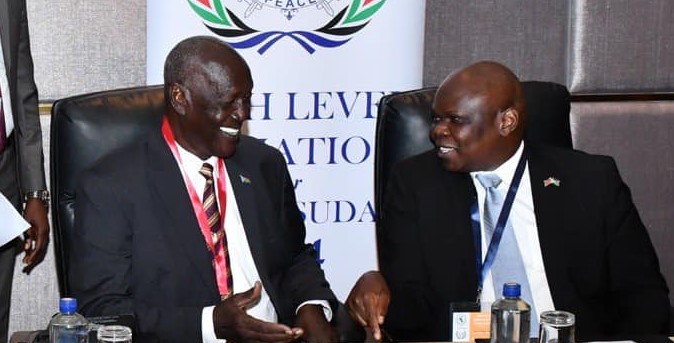Civil society activists in South Sudan have expressed optimism that the country could be ushered into a new era of peace if delegations representing the government and holdout opposition groups continue to negotiate in good faith at the Kenyan-led Tumaini (hope) Initiative.
The talks, which are aimed at forging sustainable peace in South Sudan, have been ongoing in Nairobi, Kenya, since January 20, 2025. Seen as a critical step toward resolving the country’s prolonged political and security crises, the talks offer renewed hope for lasting peace in the country.
These discussions, which began in May 2024, involve the Revitalized Transitional Government of National Unity (RTGONU) and the opposition United People’s Alliance (UPA), formerly known as the South Sudan Opposition Movement Alliance (SSOMA).
After resuming last month, the talks experienced a brief deadlock when the opposition declared the Tumaini Initiative a stand-alone agreement. This position was rejected by the government delegation, which insisted that Tumaini should be an annex to the 2018 Revitalized Agreement on the Resolution of Conflict in South Sudan (R-ARCSS), which established the current government.
However, Edmund Yakani, Executive Director of the Community Empowerment for Progress Organization (CEPO), expressed confidence in the progress of the talks during an interview with Radio Tamazuj on Thursday. He emphasized that both sides were now negotiating in good faith.
“Talks are progressing well in Nairobi, with agenda items already agreed upon,” Yakani said. “Today, the delegations will discuss the relationship between Tumaini and R-ARCSS. The debate will likely be intense as they determine whether Tumaini will serve as an annex or a complementary agreement.”
Yakani further explained that the agenda includes addressing the root causes of the conflict, the relationship between R-ARCSS and Tumaini, power-sharing, and the development of an implementation matrix.
He also expressed optimism about the potential outcome: “Tumaini will serve as a complementary agreement to help guide the political transition.”
Bol Deng Bol, Executive Director of INTREPID South Sudan (ISS), also shared his optimism about the talks’ progress and urged continued momentum.
“They have agreed on the topics they are discussing, which is a positive step,” Bol said. “They are on the same page and addressing the root causes of the conflict.”
Bol added, “There is now a sense of ownership among the delegations, and they feel responsible for the country’s challenges. I hope this initiative will bring the holdout opposition members and those in the PCCA back to the negotiating table.”
As the talks continue, many hope they will pave the way for a peaceful and unified South Sudan, ending years of political instability and conflict.




